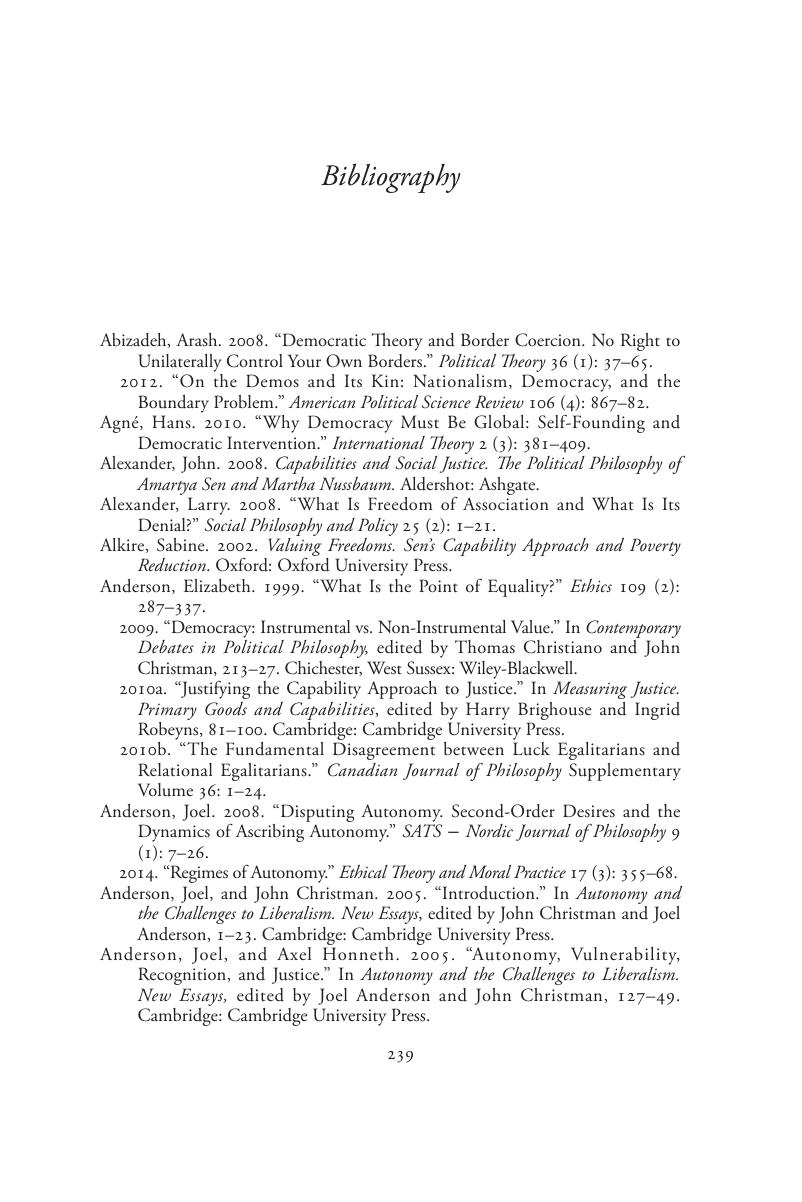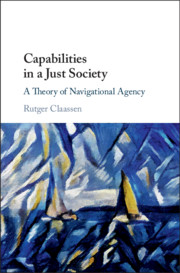Book contents
- Capabilities in a Just Society
- Capabilities in a Just Society
- Copyright page
- Dedication
- Contents
- Figures
- Tables
- Acknowledgements
- Introduction
- Part I Positioning the Capability Approach in Political Theory
- Part II The Theory of Navigational Agency
- Part III Three Sets of Basic Capabilities
- Conclusion
- Book part
- Bibliography
- Index
- References
Bibliography
Published online by Cambridge University Press: 04 October 2018
- Capabilities in a Just Society
- Capabilities in a Just Society
- Copyright page
- Dedication
- Contents
- Figures
- Tables
- Acknowledgements
- Introduction
- Part I Positioning the Capability Approach in Political Theory
- Part II The Theory of Navigational Agency
- Part III Three Sets of Basic Capabilities
- Conclusion
- Book part
- Bibliography
- Index
- References
Summary

- Type
- Chapter
- Information
- Capabilities in a Just SocietyA Theory of Navigational Agency, pp. 239 - 258Publisher: Cambridge University PressPrint publication year: 2018



